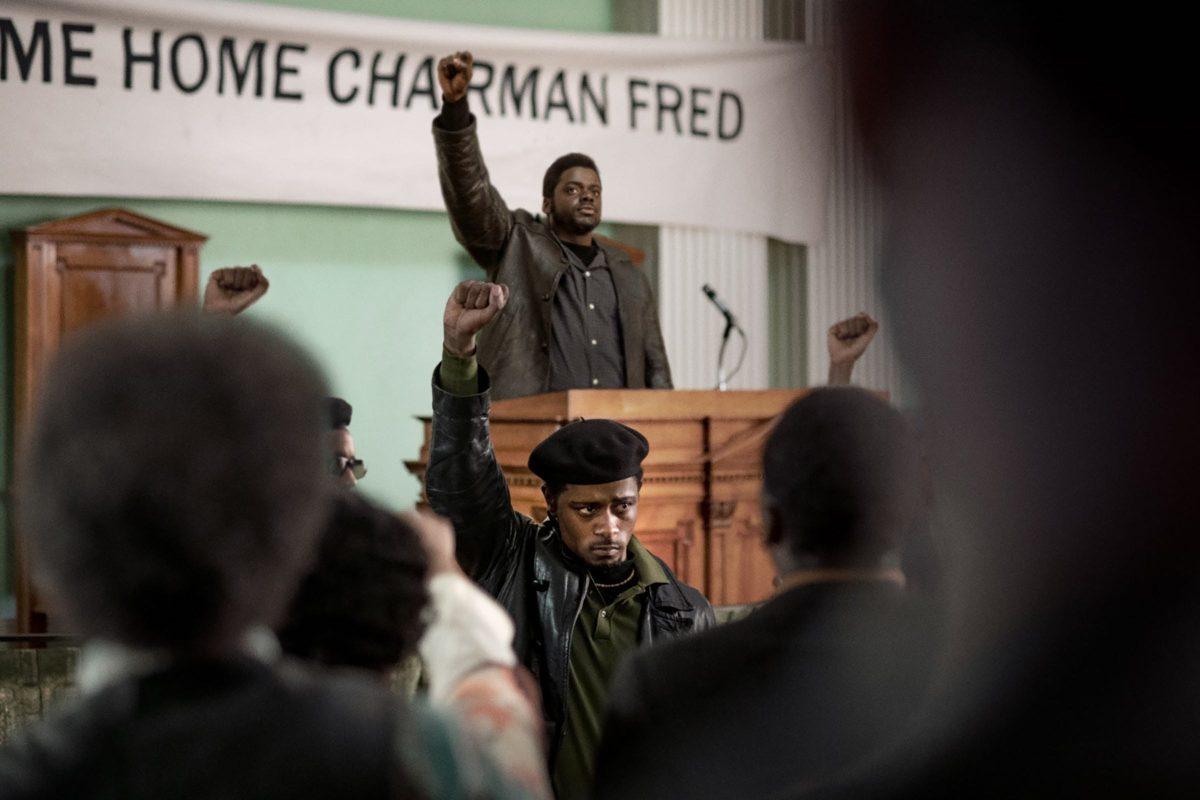With the first shot of Judas and the Black Messiah, director Shaka King establishes that human stories will be at the center of this film. We open on William O’Neal (LaKeith Stanfield) being interviewed in 1989, 20 years after his infiltration of the Black Panther Party, still in midst of grappling with his involvement in Chairman Fred Hampton’s assassination. The events that follow seem to be a grand, inevitable tragedy (a clever choice considering the historical loftiness of the film’s title).
In telling the story of the betrayal of Fred Hampton (Daniel Kaluuya), the chairman of the Illinois Black Panthers, by criminal-turned-federal informant William O’Neal, it would have been conventional for King and screenwriter Will Berson to leverage that central element as simply a vehicle for dramatic tension. In the end, the story explores much more. The tension in the film is not at all negligible; the cautious, vivid performance by Stanfield creates an anxiety that becomes so palpable in part because of Hampton’s uncompromising devotion to the Black Panther movement.
In a less politically-charged or emotional film, the significance of O’Neal’s presence as an outsider would stop there, but his perspective as someone who exists on both sides of the political turmoil is used to paint a more layered portrait of the conflict between Chicago’s Panthers and the white authorities and FBI agents. The acting portrayals of other members of the Black Panthers deftly imbued the party’s depiction with all of the outrage — and violence — of the movement, and served to both ratchet up O’Neal’s paranoia and complicate the morality of the Panthers’ methods. Parallel to O’Neal’s life as a Panther, he is fed the Hoover-approved comparison of the Panthers to the Ku Klux Klan, primarily by the FBI agent he reports to, Agent Roy Mitchell (Jesse Plemons), whose inclusion adds a surprising dimension to the federal conspiracy against the Panther Party. It posits a question that the nation still grapples with today: how should we react when violence erupts during the fight for liberation? Judas does not provide any easy answers. Brutal shoot-outs with Chicago police exist alongside moments of genuine selflessness and kindness among the struggle for justice because that is the reality of any organization that is made up of real, imperfect people. The FBI took advantage of that reality in their attempt to convince O’Neal that the Panthers are the country’s greatest national threat, but O’Neal, like the audience, has borne witness to the true complexity of a reality that could not possibly fit inside Hoover’s reductive condemnations.
Judas is a standout within the many films depicting the Black experience in light of the Black Lives Matter protests because of the script’s ability to fully communicate the complexities that are unavoidable in any conversation about Civil Rights. It is a balancing act that does not condone violence while never losing the humanity at the heart of the movement, which is not an easy thing to achieve. Judas is not an easy watch, and the strengths I mentioned does not mean that every element of the film is perfect, but it represents the future of depicting Civil Rights on screen.





